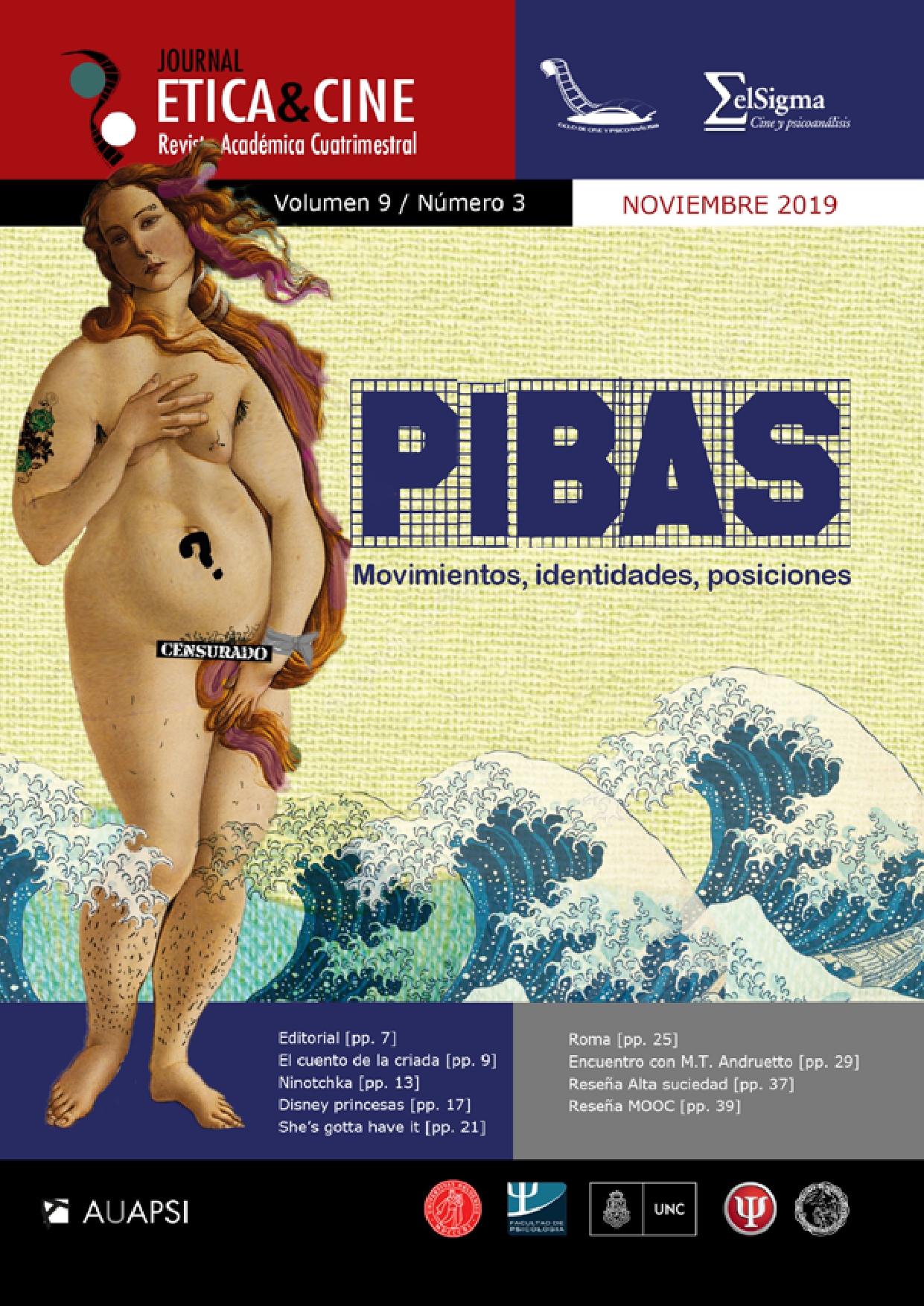Garbo laughs!
DOI:
https://doi.org/10.31056/2250.5415.v9.n3.26799Keywords:
Female jouissance, Father, Communism, Capitalsm, Not-all LacanianAbstract
This article works from the movie Ninotchka (1939), by the duo Lubitsch-Wilder, starring Greta Garbo. The purpose of this article is to elaborate the articulation between love for the father and the Lacanian logical category of not-all based on the aforementioned film. Ninotchka´s lesson is that the failure in the paternal regime is not introduced by capitalist temptations, but rather by the Lacanian feminine. In addition, it distinguishes between the liberation of women and their “liberalization”. The great finding of the film lies in the invention of a way of expressing the feminine jouissance impossible to say, through Garbo´s unbridled laughter that produced one of the mythical scenes of Hollywood cinema.
Downloads
References
Crowe, C. (2004). Conversations avec Billy Wilder. París: Actes Sud.
Fernández, D. (2015). Mujeres de papel. Buenos Aires: Grama.
Franklin, S., Lubitsch, E. (productores) y Lubitsch, E. (director). (1939). Ninotchka [Cinta cinematográfica]. EU.: Metro-Goldwyn-Mayer.
Lacan, J. (1972-1973). Aún. El seminario de Jacques Lacan. Libro 20. Buenos Aires: Paidós.
Laurent, E. (2016). El psicoanálisis y la elección de las mujeres. Buenos. Aires: Tres Haches.
Trueba, F. (2004). Diccionario de Cine, Madrid: Plot.
Downloads
Published
How to Cite
Issue
Section
License
Los autores que publiquen en Ética y Cine Journal aceptan las siguientes condiciones:
Los autores/as conservan los derechos de autor © y permiten la publicación a Ética y Cine Journal, bajo licencia CC BY-SA / Reconocimiento - Reconocimiento-CompartirIgual 4.0 Internacional. La adopción de esta licencia permite copiar, redistribuir, comunicar públicamente la obra, reconociendo los créditos de la misma, y construir sobre el material publicado, debiendo otorgar el crédito apropiado a través de un enlace a la licencia e indicando si se realizaron cambios.

Este obra está bajo una licencia de Creative Commons Reconocimiento-CompartirIgual 4.0 Internacional.




